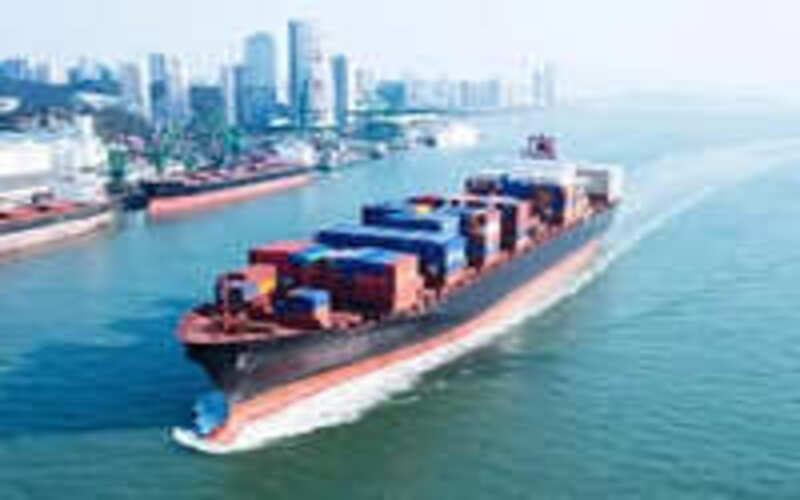In the realm of international trade, the proper understanding of Incoterms such as FOB (Free On Board) and EXW (Ex Works) is essential for ensuring the smooth transportation and shipment of goods. These terms delineate the responsibilities between buyers and sellers regarding risk, cost, and logistics. To select the most appropriate Incoterm, one must thoroughly understand how each term defines responsibility at various stages of shipment, as well as the cost implications.
Summary of Key Differences
- FOB (Free On Board): The seller covers all costs and risks associated with the goods until they are loaded onto the designated ship. After that point, the buyer assumes responsibility.
- EXW (Ex Works): The seller’s responsibility is limited to making the goods available at a specified location. The buyer handles the entire shipping process from collection to final delivery.
This article provides an in-depth analysis of both terms and discusses factors that influence the choice between them, such as risk tolerance, shipping costs, and experience with logistics.
Detailed Overview of FOB (Free On Board)
FOB, an Incoterm that stands for “Free on Board,” indicates that the seller is responsible for the goods and their associated risks and costs up until they are loaded onto the ship at the port of departure. Once the goods are on board the vessel, the responsibility and risk pass to the buyer.
| Characteristic | Details |
|---|---|
| Seller’s Responsibility | All costs and risks until goods are loaded onto the ship |
| Buyer’s Responsibility | All costs and risks after goods are loaded onto the ship |
| Shipping Point | Name of the port where goods are loaded onto the vessel |
| Freight Charges | Buyer arranges and pays for the transport from the departure port to the destination |
Risk and Cost Transfer
Under the FOB Incoterm, the seller is responsible for arranging export clearance and transporting the goods to the port of shipment. Once the goods are loaded onto the ship, all further responsibility—ranging from the bill of lading to the unloading at the destination port—shifts to the buyer.
A Closer Look at EXW (Ex Works)
EXW, which stands for “Ex Works,” places minimal responsibility on the seller. The seller’s duty is to make the goods available at their own premises or another agreed location. After that, the buyer takes on full responsibility for transportation, insurance, and all other logistics involved in moving the goods to the final destination.
| Characteristic | Details |
|---|---|
| Seller’s Responsibility | Provide goods at an agreed location (warehouse, factory, etc.) |
| Buyer’s Responsibility | Arranges and pays for transportation, export clearance, etc. |
| Shipping Point | Agreed location (usually the seller’s premises or warehouse) |
| Freight Charges | Buyer assumes all transport costs, including local charges |
Minimizing Seller’s Role
The key advantage of EXW is that it minimizes the seller’s involvement, shifting the burden of organizing and paying for shipment, customs clearance, and insurance entirely to the buyer. While this provides flexibility for the buyer, it can pose a challenge for those unfamiliar with international logistics.
Choosing Between FOB and EXW
The decision to use FOB or EXW depends on various factors, including the buyer’s experience with international logistics, risk tolerance, and cost considerations. Here are some critical factors to consider:
Buyer’s Expertise
If the buyer has a strong understanding of local shipping and logistics within the seller’s country, EXW may be a better fit, as it offers more control over the shipment process. However, for less experienced buyers, FOB might be the safer option as it offers more predictable costs and fewer risks.
Risk Management
FOB is advantageous for those who wish to manage risks only until the goods are loaded onto the vessel. EXW, however, requires the buyer to take full responsibility, which may be appropriate for businesses that are well-versed in handling shipments across international borders.
Cost Considerations
FOB typically includes the seller’s shipping costs, including loading and export clearance. If a buyer prefers more control over transportation costs, EXW allows for direct negotiation with logistics providers, potentially reducing overall transportation expenses. However, it may come with the trade-off of added complexity.
Supplier Trust and Relationships
For buyers who have established long-term relationships with their suppliers, EXW can be an appealing option. They may trust their suppliers to handle the goods properly, knowing that they can manage the logistics themselves. In contrast, if a buyer is unsure about the supplier’s capabilities or is dealing with new suppliers, FOB provides more security.
Conclusion
In international shipping, choosing the right Incoterm is crucial for optimizing logistics and managing risk. FOB offers a more balanced approach with clear delineation of costs and responsibilities, making it suitable for buyers who prefer a hands-off approach to logistics. On the other hand, EXW provides maximum control to the buyer, though it places the burden of responsibility entirely on them.
By understanding the key differences between FOB and EXW, businesses can make informed decisions that align with their operational needs and risk profiles. Whether you prioritize cost control, reduced risks, or logistical flexibility, both Incoterms serve distinct purposes that can streamline international trade when used appropriately.



